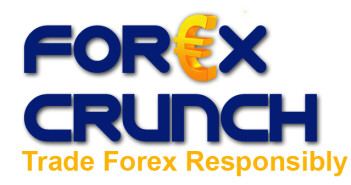The new CFTC rules consist of 50:1 leverage decision as well as many other regulations for the industry. But there might be one big hidden rule: US clients won’t be able to open accounts with foreign brokers. This can be implemented by assigning the notorious 7995 credit card classification to foreign brokers – preventing American from depositing funds with foreign brokers. Here are the full details.
Update, December 2014:Â US forex traders banned from making credit card deposits after January 2015
The CFTC finalized their ruling for forex, with the 50:1 leverage decision taking the headlines. The rules that will be in effect on October 18th, about 6 weeks from now are based on the initial proposals from January, but also on the Dodd-Frank act. And this is already something else:
In the past 24 hours, there’s been a lot of talk about one implication of the Dodd-Frank act – that US brokers won’t be able to open accounts with foreign brokers – including subsidiaries of respected and regulated US brokers in the UK.
Here’s what Rob Booker said in a comment on Michael Greenberg’s post yesterday:
The requirement that a counterparty to retail fx transactions be a U.S. financial institution has not changed. That is not part of the CFTC regs that were published today, but rather part of the ‘‘Dodd-Frank
Wall Street Reform and Consumer Protection Act’’ – the finreg that everyone has been talking about.
Francesc Riverola mentions and then emphasizes on a small comment on the official statement made by InterbankFX:
InterbankFX in its public note states: “Beginning October 18, 2010, overseas brokers will no longer be able to service U.S. customers.â€
So, in order to protect the American public, regulation in the US may not be enough. “Protection†may go beyond domestic regulation – it may forbid US clients from opening accounts abroad.
In my report about the 50:1 leverage decision, I asked if US traders will run away. But maybe they’ll have nowhere to go to.
How can this be implemented? By blocking credit cards.
Every company has a credit card classification by the IRS. This is called Merchant Category Code (MCC). 7995 is the code for Betting/Casino Gambling.
US credit cards are often rejected when a client tries to fund an account with an online gambling company. This is one of the ways to prevent Americans from gambling outside the US.
This 7995 mechanism to keep money in the US already exists for gambling. Will it also be used for forex trading?
Now, I’m sure there are workarounds, and as Michael states, the gambling industry is still on its two feet. So, this may not fully prevent US clients from trading abroad.
But,  it still might have a strong implication – the average American will virtually have no choice.
What do you think?



